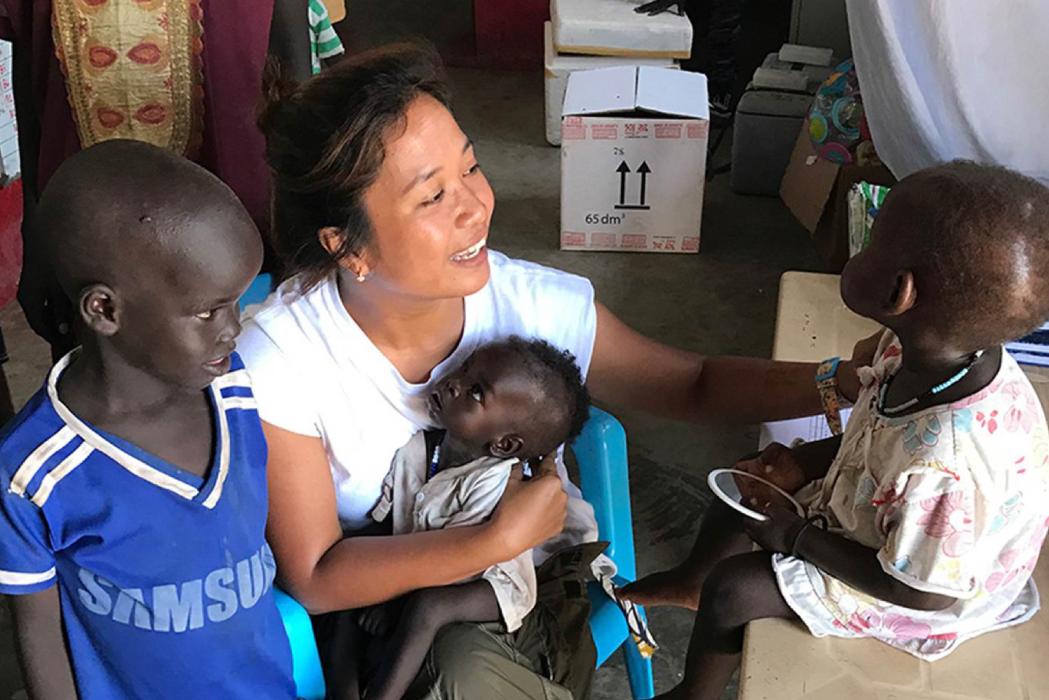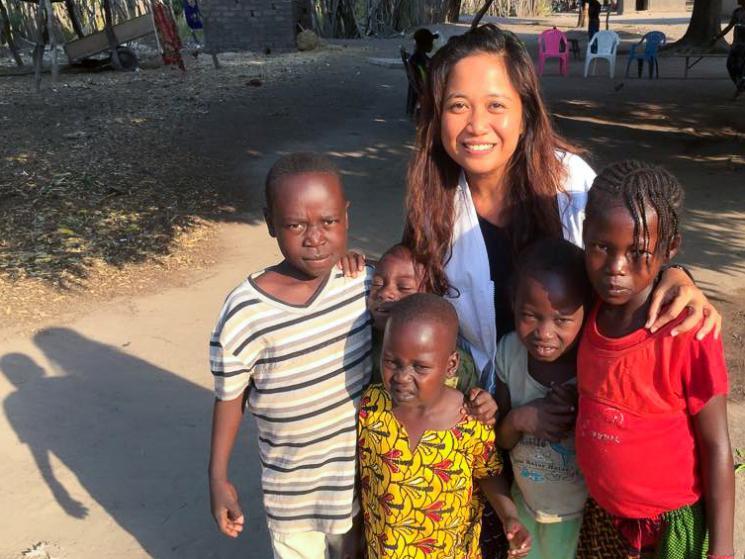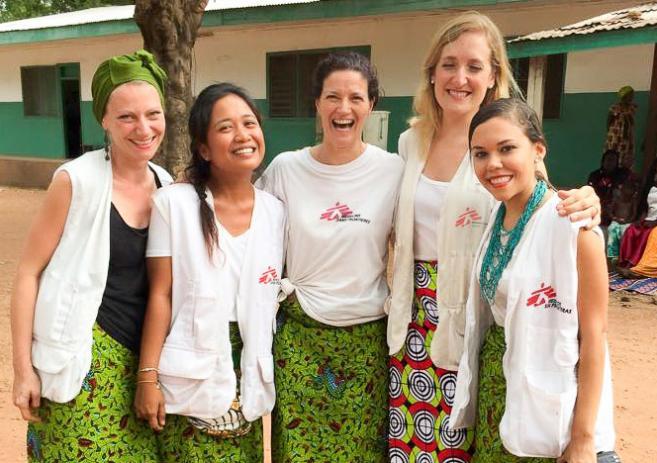Dreams and detours: How I became a Doctors Without Borders nurse

© Ji Nacanaynay/MSF
When I was young, I always asked my mum for medical toy sets.
I had kidney basins, forceps of various colours and sizes and a couple of stethoscopes.
During playtime, my friends and I would pretend that we were in a hospital – making up physical complaints that I needed to check and cure.
I wanted to become a doctor. Or so I thought.
“Where I wanted to be”
I took up nursing in college, seeing it as the most direct route to medicine. But I took a detour along the way.
It started when I first donned my nurse's cap and uniform halfway through nursing school. I looked at myself in the mirror and felt that I was exactly where I wanted to be.
Then there was the profound joy I felt spending four to six hours in the hospital with our patients. I felt fulfilled checking vital signs and in making sure the patients took their prescribed medication.
The one-year limit
The original plan was for a seamless transition to medical school once I become a registered nurse, but I thought I'd try nursing for a year.

Ji Nacanaynay with a group of children in the Central African Republic. © Ji Nacanaynay/MSF
My first assignments were in the operating theater and delivery room, assisting surgeons with instruments during operations, and working with midwives in monitoring women in labour.
It was stressful but exciting at the same time. So, when my self-imposed one-year limit was coming to an end, I decided to extend.
Leaving for Libya
I went to the Middle East. At that time, all the nurses I knew were heading there. So off I went, setting aside my medical school plans once more.
I worked in a surgical department in Libya. My knowledge and skills were challenged, but I took those as learning opportunities to professionally grow.
What I loved in the surgical department was the interaction with patients – something that was limited in the operating theatre and delivery room because patients there are usually sedated.
The kisses and endless "thank you" from patients were motivating. I was also fortunate to work with dedicated colleagues who treated me like family.
Then, the 2011 uprising happened.
I wanted to stay, but the situation caused my mum tremendous worry. So, I went home to relieve my family's concerns.
I returned to Libya a few months later and stayed there until 2013.
Typhoon Haiyan
I left the Middle East to pursue an opportunity in Canada. I really wasn't keen on it, but again, everybody wanted to be there, so I decided to explore.

Ji Nacanaynay with her team mates while on assignment in 2016. © Ji Nacanaynay/MSF
As I was waiting for my visa, Typhoon Haiyan – one of the strongest tropical cyclones to ever make landfall – ravaged the Visayas region of the Philippines.
I immediately browsed the internet for organisations who needed volunteers, then I came across an announcement from Doctors Without Borders. I took my chances because I wanted to see myself as a nurse in a shirt and cargo pants.
Then it hit me. This is why I did not pursue medicine. I really wanted to become a nurse.
This is who I am.
A difficult decision
I got a call from Doctors Without Borders a week later and I was ecstatic. My family, on the other hand, was horrified.
The idea brought back memories of their anxiousness while I was in Libya. It was a difficult decision, but I had to put my family first.
I went to Canada to study French and to take up bridging courses for nursing. These are requirements to obtain a permit to work as a nurse there. To finance my studies, I worked in nursing homes and took jobs as a private help nurse.
For once, everybody had peace of mind except for me. Suddenly, I was not the person I envisioned myself to be.
Don't get me wrong. I sincerely cared for my patients in Canada and I appreciated their daily gratitude. But, I was restless. I was at a crossroads.
“Don’t hesitate”
I opened up about my dilemma to my favourite patient, an 86-year-old Jewish woman who always had something wise to say.
She told me: "If you have a dream, don’t hesitate to make a step towards its achievement."
So, after nine months of traversing a relatively smooth road, I took a U-turn and joined Doctors Without Borders in 2015.
Since then, I've been sent to the Democratic Republic of Congo, the Central African Republic and South Sudan.
I’ve been out in the bush, working, teaching, mentoring and inspiring others to see beyond the nurse’s cap and scrub suits. I found contentment, and I'm still learning a lot.
I realised that, sometimes, you just have to go beyond the borders of your personal plans and let the world take you for a ride with far-reaching wings.
I am now where I want to be, and I always have been.
Ji Nacanaynay works for Doctors Without Borders, based in the Hong Kong office. Before this, she was assigned to Doctors Without Borders projects in the Democratic Republic of Congo, the Central African Republic and South Sudan.






